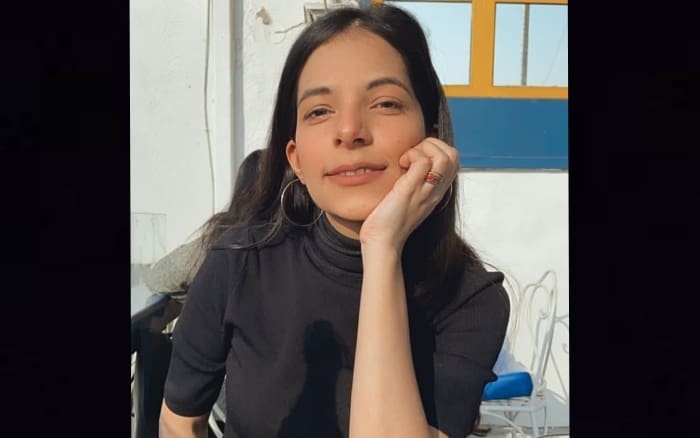
While the world entered 2022 with greater hopes and expectations, the first day of 2022 wasn’t all glitter for Indian Muslim women. Hello and welcome back to another episode of Sulli Deal 2.0. ‘Bulli Deal,’ they called it, another online auction by insecure men who are overly obsessed with vocal Muslim women in India.
Nearly six months after the Sulli Deals, in which right-wing Hindu men auctioned off photographs of over 80 women, they created another auction platform called the “Bulli Bai” Github page. Despite numerous complaints filed against the previous “Sulli Deals,” no action was taken against the perpetrators. This gave the perpetrators more confidence.
The failure to act in the “Sulli Deal” case has made it difficult for Muslim women in India to freely access the internet. This constant targeting has normalised hatred against them, with them being increasingly subjected to objectification. This comes at a time when Muslims have come together to counter online anti-Muslim hate. We Muslim women use social media to reclaim narratives around space. We use this space to counter Islamophobia, patriarchy, racism, casteism, and hate.
On 1st January, 2022, I intended to start my day by writing a new report, but I froze when I opened my Twitter notifications. My hands went numb. I was designated as the “Bulli Deal of the Day.” For a few seconds, I couldn’t believe what had happened. I felt humiliated, disgusted, and terrified. “What did I do?” I wondered. “Why am I on this harasser’s list?”
The repeated attempts to sexualize Muslim women reveal the inferiority complex that Right-wing Hindu men suffer.


Faiza Hirji, Associate Professor at McMaster University, in her article “Claiming Our Space: Muslim Women, Activism, and Social Media” states:
“No tricks of technology can change the extent to which this gendered and raced trope is embedded in the collective imagination, nor can they erase the intersection- ality and the double bind Muslim women may face, expected as they are to perform gendered piety or risk being labelled unworthy victims (Jiwani 2011). Given this context, as well as ongoing revelations about the ubiquity of surveillance and harassment online, I continue to believe that digital spaces are not truly safe spaces for anyone who speaks truth to power, making it even more imperative to deconstruct coordinated online/offline attempts at oppressing activists.”
She goes on to say that different groups feel that they should control Muslim women’s bodies in some way.
“This unity of opinion seems to confirm the notion that the state has the right to control expressions of personal devotion, but perhaps more to the point, it affirms that the obsession with Muslim women’s bodies—whether they are covered, how they are covered, what those bodies are capable of—never seems to go out of style, as it were, and the obsession is held by many different groups that feel they should control these bodies in some way.”
They target us because they know our faith is stronger, we are proud, and we will not stop speaking out against the atrocities committed against India’s Muslim community. They can’t take away our history or our identity. They are afraid that we have the ability to shut them down. Their ears are being pierced by our voices. This isn’t just about women being harassed. Remember, this is about Muslim women being harassed, sexualized, and auctioned off. Our identity should be central to the way this series of attacks is understood.
So-called Indian liberals such as Sanjukta Bose and Vidyut claimed to show solidarity through the following tweets, but in fact, trivialised the experience.
“Because I’d rather stand with the victims than with the creeps. #AuctionMeToo. own image, own handle# IssuedInSolidarity and Photoshopped,” read Vidyut’s now-deleted tweet.
Sanjukta Bose, who has been called out on numerous occasions for targeting Muslims, tweeted in support of Vidyut and aggravated Muslim women’s trauma by saying, “It’s a game @Vidyut. Only two players allowed. Perpetrator and victim. They feed of each other. Rest of us only supposed to take sides and cheer or cry but not really do anything. That’s what they want. I learnt it sometime back and stop playing.”
Harassment and objectification of Muslim women is not new in India. In July 2020, right-wing radicals in Pataudi, Haryana, organised an anti-Muslim Mahapanchayat. This mahapanchayat, which drew thousands of people, demanded the abduction of Muslim women. Despite filing a complaint against the organisers and those involved in hate speeches, no one was arrested. The Mahapanchayat was organised by the Bajrang Dal and the Vishwa Hindu Parishad.
For centuries, Muslim women’s sexual fetishization has been normalised. It is the result of deep-seated islamophobia, sexism, misogyny, and an unresolved inferiority complex. Hindu men of the right have always imagined Muslim women to be covered, veiled, submissive, and uneducated. The mere thought of strong and outspoken Muslim women does not sit well with these men.
When Hindu men sexualize Muslim women, they are indirectly attacking Muslim men and their “masculinity.” These fragile men want to take away Muslim women’s agency by sharing photographs of them and “auctioning” them off. Inaction in this case demonstrates the present dispensation’s attitude towards Indian Muslim women. Women are dehumanised by our patriarchal society, but Muslim women are treated as even less human than non-Muslim women. This hatred by the Hindu right-wing has grown in prominence since 2014; it is state-backed, so it has become normalised.
The continued impunity afforded to the majority has only deepened Hindus’ hatred for Muslims. The country has become unsafe for Muslim women because of the free pass given to mass radicalization, systematic brainwashing of young Hindu minds, and the silence of savarna Hindu liberals. When the so-called good Hindus remain silent when Muslims are subjected to daily humiliation, they indirectly support the oppressor. We need allies and solidarity right now. We don’t want Hindus to silence us; we want them to embolden us.
Arshi Qureshi is a journalist based in Delhi.



